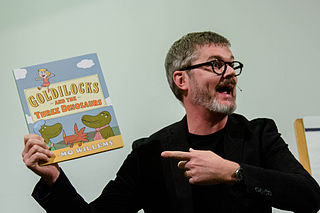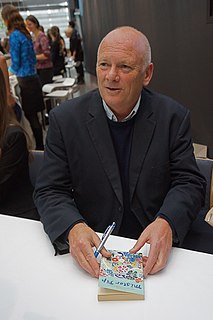A Quote by Patrick Ness
A book cannot apologize for what people may think it should be. It has to be authoritative. That's what I want as a reader - I want to be confident that the book will do its job.
Related Quotes
You will want a book which contains not man's thoughts, but God's - not a book that may amuse you, but a book that can save you - not even a book that can instruct you, but a book on which you can venture an eternity - not only a book which can give relief to your spirit, but redemption to your soul - a book which contains salvation, and conveys it to you, one which shall at once be the Saviour's book and the sinner's.
Write what you want to read. So many people think they need to write a particular kind of book, or imitate a successful style, in order to be published. I've known people who felt they had to model their book on existing blockbusters, or write in a genre that's supposed to be "hot right now" in order to get agents and publishers interested. But if you're writing in a genre you don't like, or modeling yourself on a book you don't respect, it'll show through. You're your first, most important reader, so write the book that reader really wants to read.
With a 660-page book, you don't read every sentence aloud. I am terrified for the poor guy doing the audio book. But I do because I think we hear them aloud even if it's not an audio book. The other goofy thing I do is I examine the shape of the words but not the words themselves. Then I ask myself, "Does it look like what it is?" If it's a sequence where I want to grab the reader and not let the reader go then it needs to look dense. But at times I want the reader to focus on a certain word or a certain image and pause there.
As parents, we should remember that our lives may be the book from the family library which the children most treasure. Are our examples worthy of emulation? Do we live in such a way that a son or a daughter may say, ‘I want to follow my dad,’ or ‘I want to be like my mother’? Unlike the book on the library shelf, the covers of which shield its contents, our lives cannot be closed. Parents, we truly are an open book in the library of learning of our homes.
A book, being a physical object, engenders a certain respect that zipping electrons cannot. Because you cannot turn a book off, because you have to hold it in your hands, because a book sits there, waiting for you, whether you think you want it or not, because of all these things, a book is a friend. It’s not just the content, but the physical being of a book that is there for you always and unconditionally.
In my couple of books, including Going Clear, the book about Scientology, I thought it seemed appropriate at the end of the book to help the reader frame things. Because we've gone through the history, and there's likely conflictual feelings in the reader's mind. The reader may not agree with me, but I don't try to influence the reader's judgment. I know everybody who picks this book up already has a decided opinion. But my goal is to open the reader's mind a little bit to alternative narratives.
You have to seduce the reader, manipulate their mind and heart, listen to the music of language. I sometimes think of prose as music, in terms of its rhythms and dynamics, the way you compress and expand the attention of a reader over a sentence, the way the tempo pushes you towards an image or sensation. We want an intense experience, so that we can forget ourselves when we enter the world of the book. When you are reading, the physical object of the book should disappear from your hands.
Every reader, as he reads, is actually the reader of himself. The writer's work is only a kind of optical instrument he provides the reader so he can discern what he might never have seen in himself without this book. The reader's recognition in himself of what the book says is the proof of the book's truth.
I began writing books after speaking for several years and I realize that when you have a written book people think that you're smarter than you really are if I can joke. But it's interesting. People will buy your book and hire you without reading the book just because you have a book and you have a book on a subject that they think is of interest to themselves or e to their company.
It's really, really eclectic. It's not a business book [Girlboss], but it's still a book that should make you want to get up and do things and think about your life. And for a book that looks that beautiful on a coffee table, I think that's a very special thing. So it's hopefully a new genre I guess, of book. It was so fun to put together and fun to write, that was really a pleasure.
I think, for me, there's The Book I Should Write and The Book I Wanted to Write - and they weren't the same book. The Book I Should Write should be realistic, since I studied English Lit. It should be cultural. It should reflect where I am today. The Book I Wanted to Write would probably include flying women, magic, and all of that.































